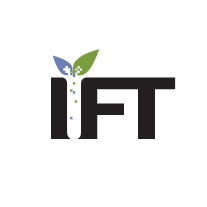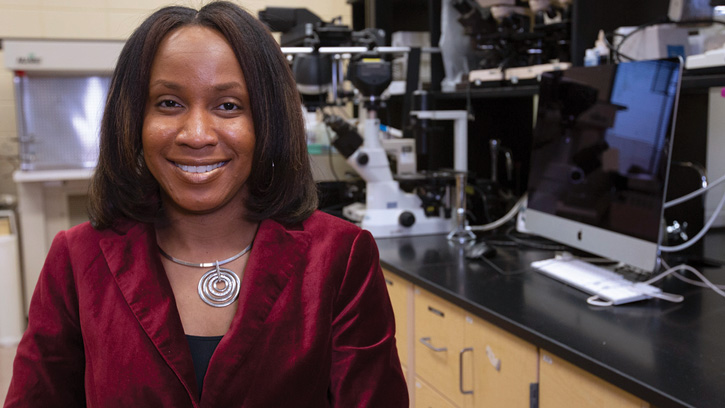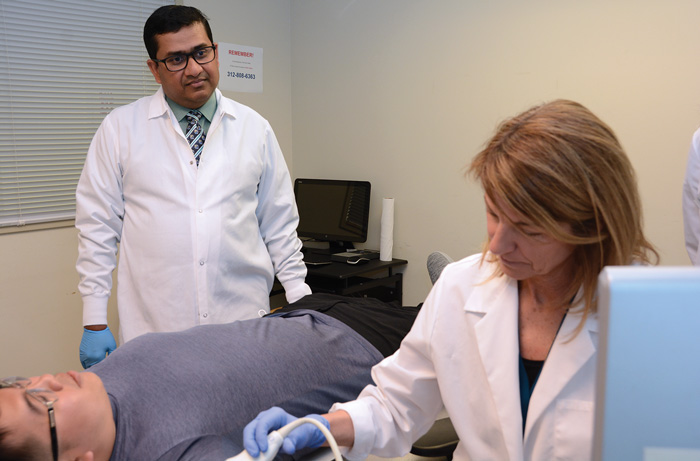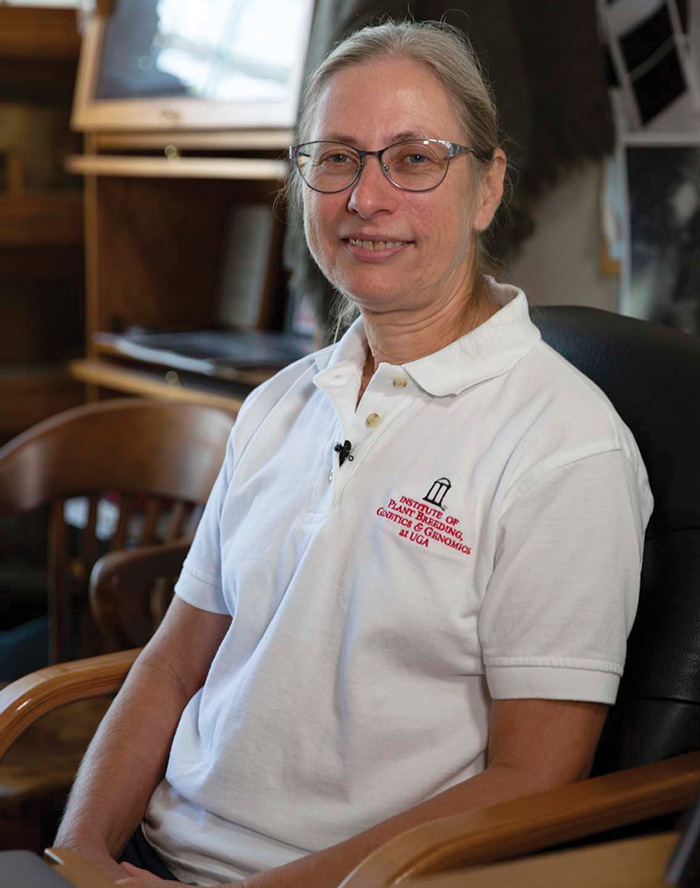Academia Adjusts to Pandemic Constraints
INSIDE ACADEMIA
The spread of SARS-CoV-2, which causes COVID-19, has had countless devastating and tragic effects around the world. The virus’s impact on the United States has been especially distressing—with infections exceeding 1.5 million and deaths surpassing 90,000 as Food Technology went to press. During the spread of this global pandemic, a few industries have emerged as essential to weathering the storm, most importantly health care. Among other industries providing essential services is the food industry. Maintaining the production, processing, and distribution of safe and nutritious food is critical. But the research that is involved in producing safe and nutritious food has, for the most part, been put on hold, whether it is in government, industry, or academic labs.
Compared with the daily news events related to COVID-19, the virus’s impact on academic research in agriculture, food, and nutrition may seem trivial, but research in these areas is paramount, as nutritious diets containing vegetables, fruits, fish, and poultry and meat products are integral to good health and strong immune systems. Without a safe and nutritious food supply, essential workers cannot work, patients cannot heal, and families cannot eat. Simply put, the academic research in agriculture, food, and nutrition helps feed the minds that feed—and save—the world.
Advancing Knowledge in Alabama
Armitra Jackson-Davis, an associate professor in the Department of Food and Animal Sciences at Alabama A&M University, leads the food microbiology laboratory; she and her staff focus primarily on natural antimicrobials and the safety of animal products and other foods. “My lab was conducting research
in the area of produce safety and the microbiological safety of poultry products. Graduate students and undergraduate students were involved with these projects,” Jackson-Davis says. But now, the work in her laboratory has been suspended. The state of Alabama issued a stay-at-home order that took effect April 4, but Alabama A&M closed its campus to everyone except essential workers (the university president, cabinet members, facilities management staff, etc.) on March 19. Classes and meetings have been occurring via digital and virtual platforms since the campus closing.
The transition from in-person teaching to online classes has been relatively smooth for Jackson-Davis. “At Alabama A&M University, our Office of Distance Education and Extended Studies has done an exceptional job of providing assistance to faculty members. This service was even available before the shutdown,” she says. The university uses technology designed by Blackboard, a company that provides tools and other resources for virtual education experiences at any level from kindergarten through higher education, and Jackson-Davis receives helpful tips about teaching online classes from her twin sister, who regularly teaches online.
While Alabama A&M’s course instruction is continuing online, there is no way to conduct laboratory research online. “All research projects in my lab have come to a stop. Luckily, all projects were at a point where they could be stopped without having to totally restart or without significant loss,” Jackson-Davis says. “The research projects will continue when the campus opens back up to faculty and graduate students. In addition, my lab collaborates with other universities. When the collaborating university’s administration made the decision to close the campus due to COVID-19, this meant that the work in my lab had to also cease.”
The inability to conduct research has stymied new research findings; it has also prevented Jackson-Davis’s graduate students from gaining experience that will help them in their future endeavors. “These research experiences are really important for undergraduate students because this experience could be used to secure internships. Graduate students feel the effects because this could lead to extended time in graduate [studies],” she says. “Although the campus shutdown is for the safety of everyone, I can imagine that any researcher with a viable research program is looking forward to returning back to the lab to conduct research.” It has also put funding for research projects in a state of uncertainty as the release of funds is sometimes dependent on deadlines or preliminary findings. “Research continuing is important,” Jackson-Davis says, adding, “With this being said, researchers understand that the safety of everyone comes first.”
Imparting Knowledge in Illinois
The Institute for Food Safety and Health (IFSH) at Illinois Institute of Technology (IIT) collaborates with the U.S. Food and Drug Administration to make discoveries in food defense, food processing, food safety, and nutrition. Britt Burton-Freeman, an associate professor of food science and nutrition at IFSH and director of the Center for Nutrition Research, and Indika Edirisinghe, an associate professor of food science and nutrition at IFSH and associate director of the Center for Nutrition Research, have been investigating dietary factors that may help maintain the proper functioning of the endothelium and exploring how dietary strategies can modulate the risk of chronic disease.
IIT transitioned all classroom instruction to online platforms effective March 23. The university has limited campus access to essential workers but continues to provide housing to students who have nowhere else to go (those students must adhere to social distancing and other public health guidelines). Burton-Freeman and Edirisinghe have thus had to suspend most of their academic research. “We had five human clinical trials active at the time we received shelter-in-place orders on March 21,” Burton-Freeman explains. “Anticipating the orders, we began reaching out to subjects to complete their final data collection or provide plans for restarting at a later date. We have two long-term feeding trials with just a few subjects remaining who were willing to continue the dietary interventions while orders are/were in place.” To continue the long-term trials, the subjects receive dietary products at their homes via delivery and remain in contact with laboratory staff via phone and email. “Some research aspects [that are] unique to the … situation are important to understand,” Edirisinghe says. “For example, how lifestyle and dietary patterns impact … overall health in a situation [such as when a] stay-[at]-home order is in effect. It is possible to do certain research such as online surveys during this time, and that will definitely give good data.”
As with online instruction at Alabama A&M, IIT uses Blackboard and other online platforms to provide students with course instruction. “As department chair, I supported faculty transition to online delivery of content by setting up training, providing tips from my own experiences, and more,” Burton-Freeman says. “Our department already had some online sections in our courses, so we were fortunate that our transition might have been a bit more seamless. The biggest challenge was labs’ needing to go online.” Edirisinghe concurs: “This has created significant challenges for us.” Researchers and students are being advised to work on the aspects of their research that do not require access to campus laboratories. This includes analyzing data collected before and during the campus shutdown. “These are analyses from the projects we have ongoing or recently completed. In some ways, the time has allowed for dedicated attention [to] this part of the research,” says Burton-Freeman. Still, she adds, “everyone prefers to work in the lab.”
For Edirisinghe, the changes have had “significant impact on my academic work as several of my [graduate] level students were supposed to graduate in this semester. All our research staff were paid from research grant money, and we will have to negotiate with funding agencies to keep the staff. We have requested additional funding from funding agencies for delaying the research activities.”
While there is disappointment in having to discontinue many of their research studies, an opportunity to participate in public health efforts to stem the pandemic has emerged. “With special permission from the university, our staff and students are helping the Illinois state government,” Edirisinghe reveals. “Our laboratory was transformed and our staff and students [have been] trained to produce viral transport medium (VTM),” Burton-Freeman says. “To ease the bottleneck in COVID-19 testing, essential faculty from [the Department of Food Science and Human Nutrition], … colleagues in biology, and staff at IFSH teamed up to produce the VTM. We deliver over 10,000 tubes of VTM per week to the [Illinois Department of Public Health].”
Generating Genomic Insights in Georgia
Peggy Ozias-Akins, a professor in the Department of Horticulture at the University of Georgia (UGA) and director of the university’s Institute of Plant Breeding, Genetics, and Genomics, performs agricultural and genomic research to improve the safety, sustainability, profitability, and availability of peanuts and other crops. Ozias-Akins has been working on identifying the genes of several traits that confer disease resistance and reproduction in peanuts and on the functional analysis of the gene for fertilization-independent development in grasses.
UGA transitioned all of its classes to online instruction on March 16 for the remainder of the spring semester. Now, only personnel designated as essential are allowed on the campus, and research is limited to essential activities only, such as preserving materials (e.g., animals, plants, and certain biological samples) to protect investments of time and resources and, in the case of plant research, to preserve the future season.
“No research has been terminated, but delays in completing the research are expected. Field activities are continuing where they can be accomplished with proper social distancing, but that obviously reduces what can be accomplished this year, [and] lab activities are minimal,” Ozias-Akins says. Because of the nature of her research, its continuity is considered necessary, even during the pandemic. “The biological materials with which we work often are unique and at a growth stage that requires further maintenance before reproduction or analysis at the time of reproduction. With regard to the field, there is a limited planting window that, if missed, causes the loss of an entire year of research progress,” she explains. As is the case with professors at other universities, Ozias-Akins and her laboratory staff have been utilizing online platforms such as Zoom to work remotely. “[Some] have job responsibilities that cannot be carried out remotely. When possible, we have shifted responsibilities around to keep everyone engaged and productive,” she says. “As part of a dual degree program between UGA and the University of Padova, I was supposed to teach a plant breeding course in Italy this spring. Instead of being there in person, I am delivering it through a combination of recorded lectures and class discussions through Zoom.”
Challenges & Outlooks
A safe, nutritious, and continuous food supply is essential and would not be possible were it not for food, agriculture, and nutrition sciences. The researchers at Alabama A&M, IIT, UGA, and other colleges and universities have had to modify how they work but are no less committed to their goals. “This was an unexpected event, and indeed, nobody was prepared,” Edirisinghe says. Many researchers are also trying to balance their work with extra responsibilities at home. ”Some are impacted by home-schooling of children, which naturally reduces the amount of work they can complete at home,” Ozias-Akins points out. “My husband [and I] are faculty members with teaching and research responsibilities,” Jackson-Davis adds. “We have two young children (ages 4 and 7) who are out of school due to COVID-19. As with many parents in our position, educating our own children … coupled with working full time has its challenges. However, we are adjusting.”
When bright minds are challenged, they come up with solutions. COVID-19 has researchers reflecting on ways to be better prepared for events like a global pandemic. “This experience brings to the forefront the importance of having a contingency plan (long-term in nature) in place for future events that might cause a disruption in research,” Jackson-Davis says.
“[This] reminds us of the importance of creativity, having skills to problem solve, being solution-driven, thoughtful, and able to think on our feet,” Burton-Freeman says. “All of this seemed to come very quickly. I think our department … and our university as a whole rose to the challenge and did so with grace.” Contemplating what the future may hold, Ozias-Akins believes that this experience is teaching all academics “how productive we actually can be in a different environment while still staying connected. ... [I’m] not entirely sure how we will be affected in the future except that social distancing will continue for a while. I expect that we will be more receptive to using online tools now that all have more experience with them.”








